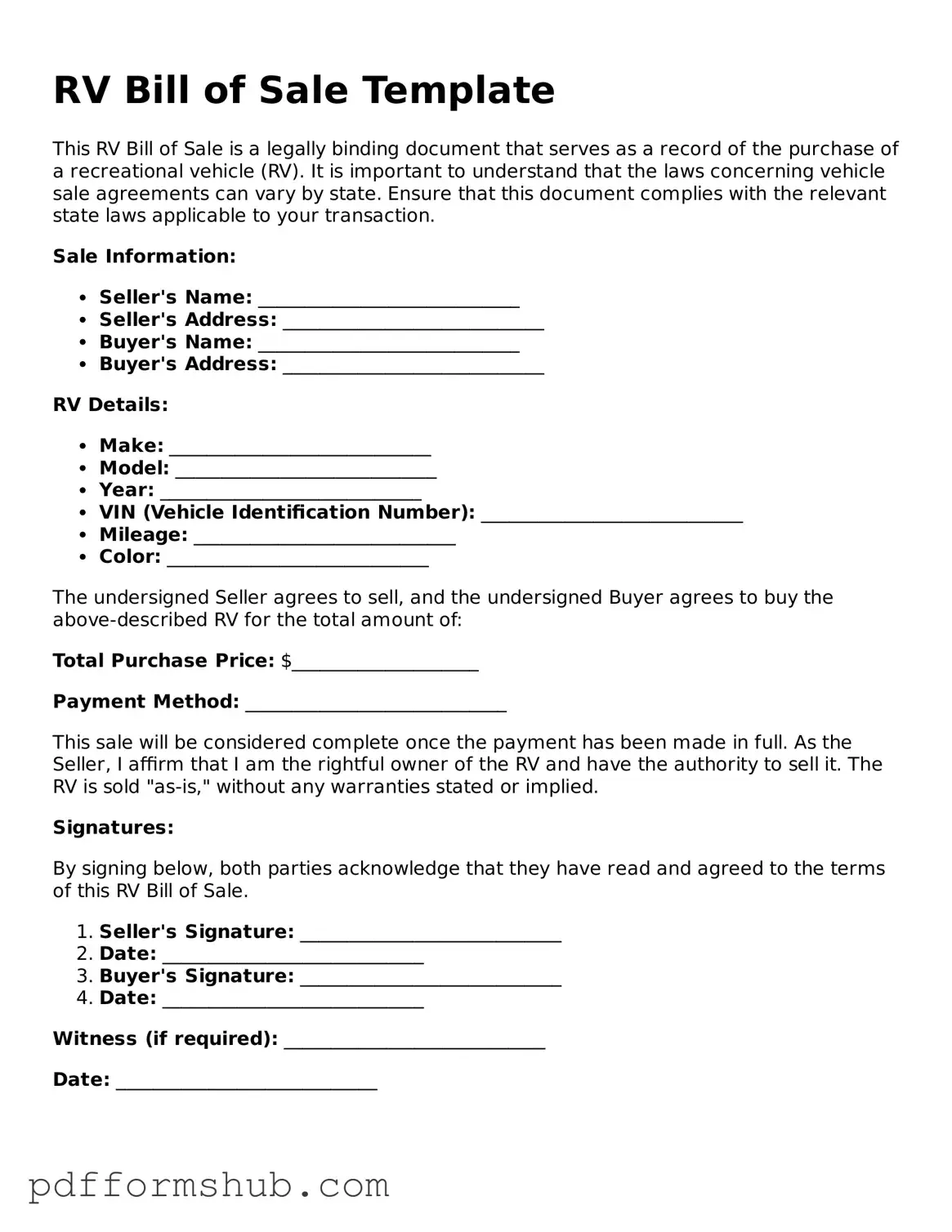Valid RV Bill of Sale Form
An RV Bill of Sale form is a legal document that records the sale and transfer of ownership of a recreational vehicle (RV) between a seller and a buyer. This form serves as proof of the transaction and includes important details such as the vehicle identification number, sale price, and the names of both parties involved. To ensure a smooth transfer, fill out the form by clicking the button below.
Customize Form

Valid RV Bill of Sale Form
Customize Form

Customize Form
or
Free PDF Form
Short deadline? Complete this form now
Complete RV Bill of Sale online without printing hassles.